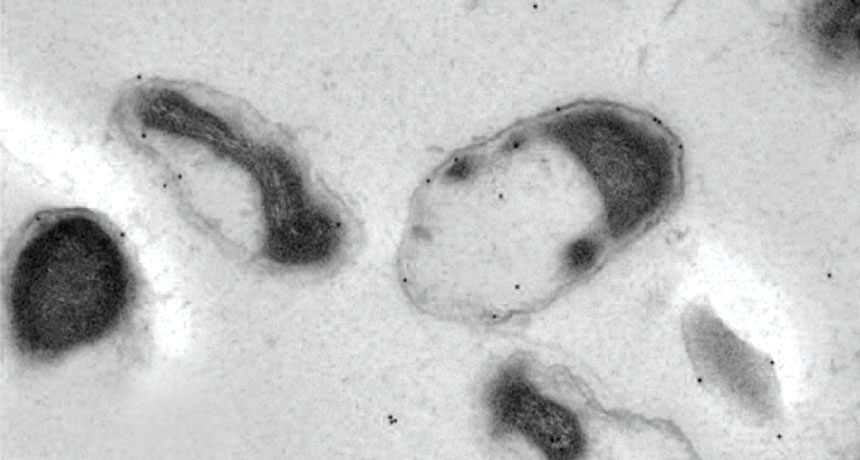Gut bacteria may guard against diabetes that comes with aging
Old mice lose one type of friendly microbe, triggering a hallmark of the disease

GUT GUARDIAN A friendly gut bacterium called Akkermansia muciniphila (shown) may help protect against type 2 diabetes. Those bacteria are lost with aging, setting the stage for the disease.
N. Ottman et al/Frontiers in Microbiology 2016